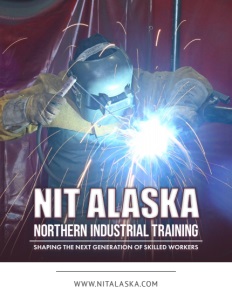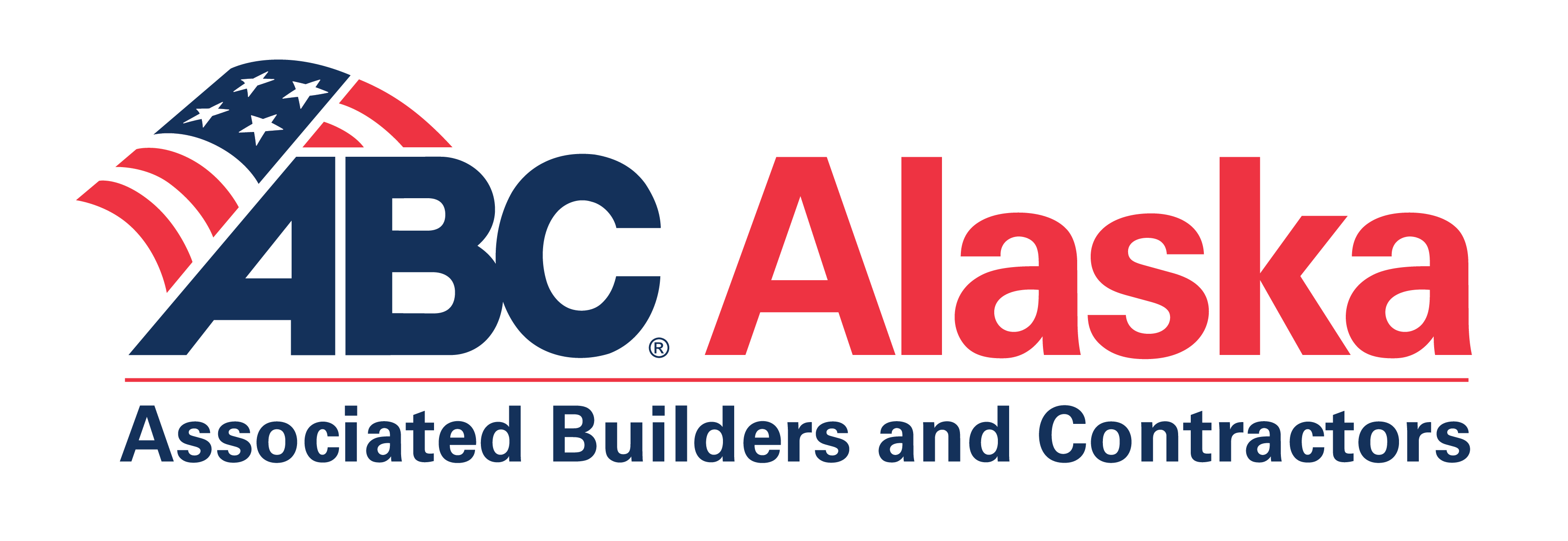NIT Alaska
How NIT Alaska is Shaping the Next Generation of Skilled Workers
Revolutionizing vocational training with cutting-edge technology and strategic industry partnerships.
Northern Industrial Training (NIT) Alaska is more than just a vocational institution. It is a powerhouse of skill development and professional growth tailored to meet the unique demands of the Alaskan job market. With a multi-faceted approach, NIT Alaska offers vocational training, safety services, and consulting, all aimed at enhancing the capabilities of both individuals and organizations.

Joey Crum, CEO
Joey Crum, the CEO of NIT Alaska, describes the institution as a critical player in vocational training. “We focus on three distinct lines of business,” Crum explains. “First, we have vocational training that is all about skills building. We take individuals with little to no skill and bring them up to a minimum employment level in entry-level fields.”
Crum continues to highlight the second key area of their operations: professional development. This aspect is geared towards upskilling individuals and helping them advance in their careers. “It’s about providing the opportunity for people to grow within their chosen fields,” he adds. “From regulatory training to safety audits, evaluations, and crafting safety plans for companies, we cover a broad spectrum of safety services.”
The third and rapidly expanding segment of NIT Alaska’s business is consulting. Crum shares that this involves working closely with employers to create internal career pathways. “We help businesses utilize their existing workforce more effectively by developing employees for higher-skilled or higher-level positions,” he says.
Another innovative offering from NIT Alaska is its homeschool and privatized learning division, which began in 2020. “We noticed a gap in hands-on educational opportunities for high school students,” Crum states. “We now offer classes like welding, mechanics, carpentry, electrical, and even entrepreneurial skills.” These courses, he notes, are not just electives but can count towards high school credits, with some even fulfilling science and math credit requirements. “Our welding classes, for instance, can qualify as a physical science credit, and carpentry can count as a math credit,” Crum points out.
Addressing the Skilled Trades Shortage
Amid an ongoing shortage in skilled trades, NIT Alaska faces a significant challenge: attracting and connecting students to available job opportunities. Crum addresses this issue head-on, emphasizing the importance of early exposure and effective recruitment strategies.
“A lot of it starts with exposure and looking at the science when we talk about recruiting,” he states. He points out that higher education institutions have mastered the art of recruiting over the decades, whereas the trades have lagged behind. “Kids in middle school may not select a career, but they start deselecting,” he explains. Historically, the trades have not done a good job of showcasing what they offer, leading many young people to overlook these career paths.
NIT Alaska’s response has been to proactively engage with students at the high school level. Crum highlights the role of familial influence, noting that while they may not run shop classes for eighth graders, many younger siblings are exposed to the trades through their older brothers and sisters attending these classes. “In 2023 alone, we traveled off the road system for 120 different training events,” Crum shares. This approach is rooted in the belief that to effect change, you must meet people where they are. Each on-site event is an opportunity to promote trades jobs, post-secondary education opportunities, and the concept of lifelong learning.
Despite the lucrative and fulfilling nature of trades careers, there is still a disconnect in public perception. “The trades are actually very well paid and provide interesting career potential,” Crum acknowledges. He emphasizes that promoting the financial and lifestyle benefits of these careers is crucial. “It’s easy because I’m a walking, talking example of what trade skills can offer,” Crum says, highlighting his personal journey through multiple levels of higher education, funded by his work in the trades.
Crum continues, “Our primary focus is on the opportunities available. You can do these jobs and then pay for school, you can do these jobs and have a full-fledged career with a retirement plan, or you can work while attending school.” This flexibility is a significant selling point, especially for young people unsure of their future paths. “One of the best things a young person can do after high school is to work and learn a trade,” Crum advises. He emphasizes that these skills are invaluable and enduring, providing a strong foundation while they figure out their next steps. “While they’re figuring out what to do, they’re earning a great living and picking up skills that will serve them forever,” he says.
Embracing Technology for Enhanced Safety
NIT Alaska’s safety training is as robust as its vocational programs, incorporating advanced technology to create a safer and more efficient learning environment. Crum emphasizes the significance of simulators in their training approach, highlighting their integration into welding, heavy equipment, and truck driving courses.
“Using simulators gives students a chance to practice in a controlled environment before they handle real equipment,” he explains. This method reduces risk and helps trainees gain confidence with potentially dangerous machinery. “For some, operating this kind of equipment is entirely new. The simulators provide a critical step in their learning process,” he adds.
The rise in young and inexperienced workers entering the trades amplifies the importance of such tools. Crum emphasizes that NIT Alaska is dedicated to leveraging technology to enhance both safety awareness and overall job site safety. “We are attracting youth into the trades at a rate we haven’t seen in decades, but this influx brings a need for new safety measures. We need to find ways to ensure these newcomers are safe and well-prepared,” he says.
Another critical aspect of NIT Alaska’s safety training is ensuring contractors and subcontractors adhere to stringent safety procedures on job sites. “The safety checks and balances on job sites are crucial,” Crum notes. “We play an integral role in developing the workforce and ensuring employers are equipped to handle this new generation of workers.”

Expansion and Investment in Facilities
NIT Alaska continues to evolve with significant investments in technology and infrastructure, aiming to stay at the forefront of vocational training. Crum discusses their recent initiatives, emphasizing the importance of aligning training equipment with industry standards.
“We have invested in more welding and truck driver simulators,” he states, highlighting the importance of cutting-edge training tools. Additionally, NIT Alaska has expanded its footprint by opening a facility in Fairbanks, about 300 miles from its Palmer headquarters. “We’ve invested in newer trucks and trailers to ensure that the training reflects what companies are actually using,” he adds. This expansion broadens their reach and enhances the quality of training, making it more relevant and practical for students.
Crum also outlines the core values that underpin NIT Alaska’s operations. “We are held steadfast by our five anchors: will to succeed, professionalism, respect, integrity, and consistency,” he says. Integrity, he notes, includes “standing in opposition to hypocrisy,” highlighting the school’s pledge to genuine ethical standards.
Recruitment and Teaching Standards
Finding qualified instructors remains challenging, and NIT Alaska is not immune to the teacher shortage affecting many institutions. “We have open positions and are actively recruiting nationwide,” Crum says. To attract talent, NIT Alaska offers incentives such as relocation costs for instructors moving from the lower 48 states. “For the last three teachers we’ve recruited, we provided help with relocation costs,” he notes.
When it comes to recruiting instructors, NIT Alaska has high standards. Communication skills are paramount. “We require that people have a superior level of communication,” Crum emphasizes. This includes the ability to communicate effectively without resorting to profanity and maintaining a calm demeanor. This requirement ties back to their anchor of professionalism.
Crum elaborates on the type of instructors they seek. “Our instructors must have the moral character we want our students to emulate,” he asserts. This means embodying the professionalism and dedication to lifelong learning that NIT Alaska values. “If someone thinks they’ve learned everything there is to learn, we’re not the place for them,” he says.
NIT Alaska does, however, balance experience with the ability to communicate. While the institution prefers instructors with significant private sector experience, it prioritizes effective communication and the capacity for development. “We would like the most experienced and best in the field, but we won’t choose that over the ability to communicate,” Crum explains. As a skills-building school, it has the resources to develop the abilities of hires, ensuring they meet the school’s high standards.
Future Vision and Strategic Priorities
Looking ahead, NIT Alaska is poised to deepen its impact on vocational training and workforce development. Crum outlines the strategic priorities for the next 18 months, focusing on strengthening connections with employers and enhancing educational outreach.
“Our top priorities are to expand our direct relationships with employers,” he says. This involves building comprehensive career ladders tailored for various stakeholders, such as native corporations and their shareholders. “We want to create integrated workforce plans that align with the needs of companies,” he explains.
He also emphasizes the significance of exposing secondary school students to vocational opportunities. “We aim to see more secondary schools offering vocational and shop-type classes or at least exposing their students to what is available,” he states. By integrating vocational training into the secondary education system, NIT Alaska hopes to inspire more young people to pursue careers in the trades.
This forward-thinking approach is not just about filling jobs; it’s about creating sustainable career pathways that benefit both individuals and the broader community. Crum’s vision is clear: to equip students with the necessary skills and ensure that local industries have a well-trained, competent workforce.
As NIT Alaska continues to expand its facilities, update its training technologies, and refine its educational programs, it remains dedicated to its core values. Will to succeed, professionalism, respect, integrity, and consistency are the anchors that will guide the institution through this period of growth and beyond.
AT A GLANCE
NIT Alaska
What: Standards driven, results oriented company specializing in vocational skills training, career and technical education and workforce development solutions.
Where: Palmer, Anchorage and Fairbanks, Alaska
Website: www.nitalaska.com
PREFERRED VENDORS
Alaska EXCEL – https://alaskaexcel.org/
Alaska EXCEL is a federally recognized 501c3 non-profit that provides junior high and High school-aged students across rural Alaska with an opportunity for individualized, real-life academic and career-oriented experiences to complete the requirements needed to receive a high school diploma and make a successful transition into post-secondary training and the workforce.
EXCEL Alaska IS:
- Designed to provide individual, real-life academic and career exploration experiences that excite students about their future, whether remaining in their communities or pursuing a career in a more urban area.
- Creating opportunities for rural/remote high school students to earn specific career-related certificates, including Fish Biology, First Responders, Fire Training, Drivers’ Education, Small Engine Repair, Heavy Equipment Operations, Carpentry, Culinary Arts, Aviation, Public Safety, and many more.
- Providing opportunities for students to earn dual high school, college credit, and industry-recognized training certificates.
- Open to all students, regardless of their GPA.
- Linking students to various types of post-secondary training, including the university system, career and technical programs, paid work internships, and apprenticeships, and moving them directly into the workforce.
- Connecting students to regional and local village corporations and statewide industries and businesses.
- Operating on a year-round calendar.
EXCEL Alaska is NOT:
- A full-time boarding school.
- A program that removes students from their local schools.
- A program that removes students from their communities and culture.
EXCEL Alaska offers approximately 900 student opportunities annually. The program is open to students enrolled in grades 7 through 12+ (up to age 21). The intensive sessions last 4 to 30 days, depending on each participant’s age/grade level and prior training.





